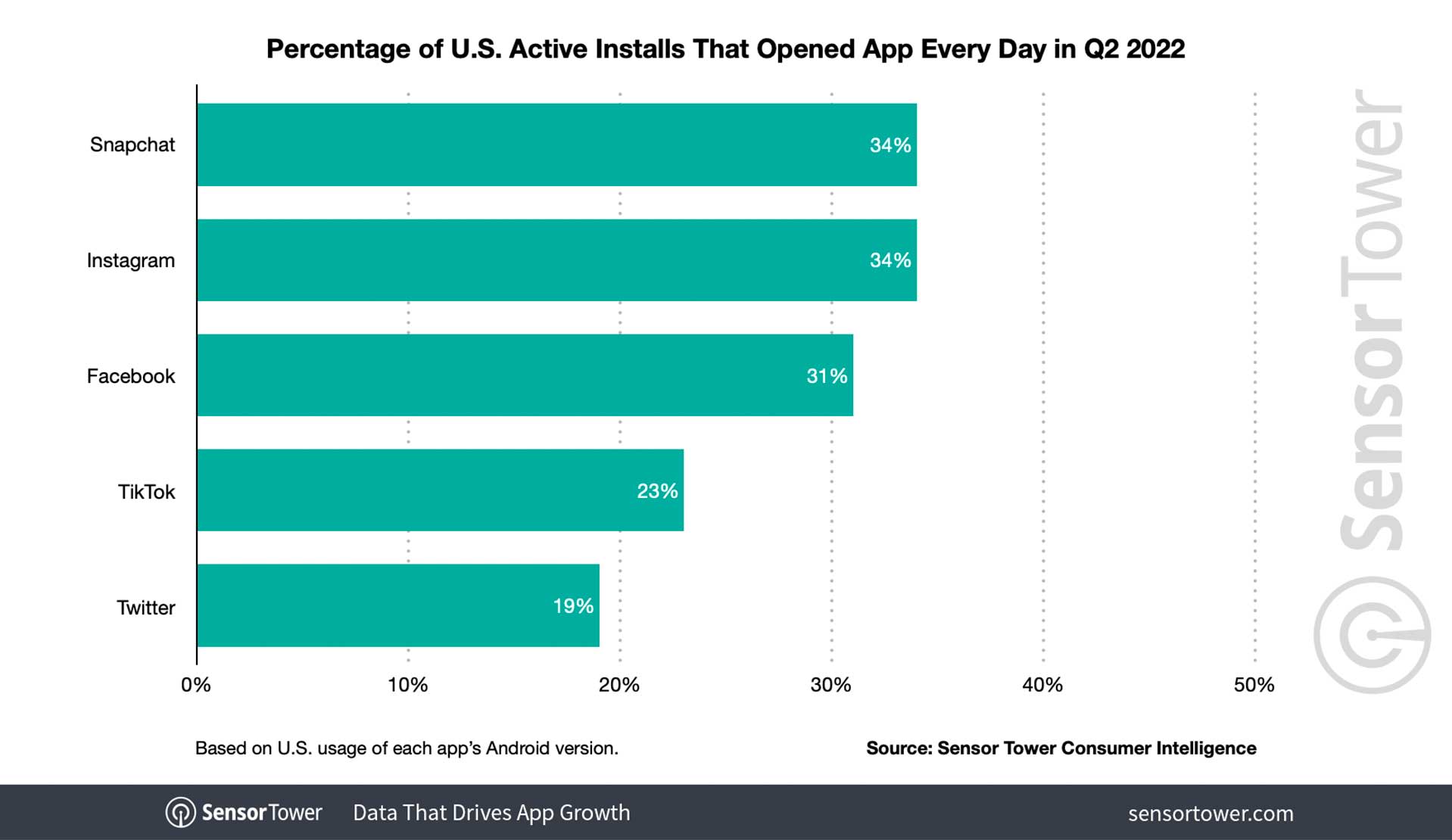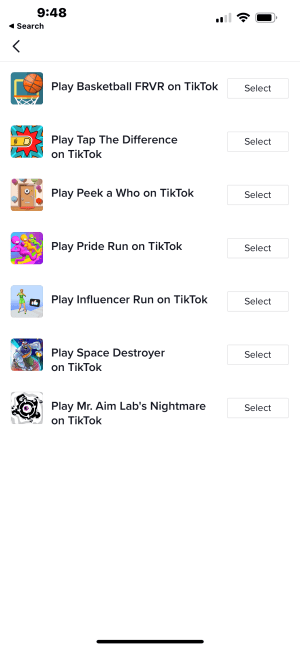Welcome back to This Week in Apps, the weekly TechCrunch series that recaps the latest in mobile OS news, mobile applications and the overall app economy.
Global app spending reached $65 billion in the first half of 2022, up only slightly from the $64.4 billion during the same period in 2021, as hypergrowth fueled by the pandemic has slowed down. But overall, the app economy is continuing to grow, having produced a record number of downloads and consumer spending across both the iOS and Google Play stores combined in 2021, according to the latest year-end reports. Global spending across iOS and Google Play last year was $133 billion, and consumers downloaded 143.6 billion apps.
This Week in Apps offers a way to keep up with this fast-moving industry in one place with the latest from the world of apps, including news, updates, startup fundings, mergers and acquisitions, and much more.
Do you want This Week in Apps in your inbox every Saturday? Sign up here: techcrunch.com/newsletters
Top Stories
Users demand the TikTok-ification of Instagram must stop
How do you modernize an app like Instagram, whose roots are in iconic iPhone photography, to support users’ growing engagement with short-form video? If you’re one of the many increasingly frustrated Instagram users, you simply wish it would not attempt this pivot at all. You’re sick of the app’s constant changes, its clutter, its ads, its force-fed recommendations, and you’re not a fan of its TikTok ambitions. You just want to see your friends’ posts.
This issue finally came to a head this week when celeb sisters and Instagram top creators Kylie Jenner and Kim Kardashian shared a petition that demanded Instagram to “stop trying to be tiktok.” The day after, Instagram head Adam Mosseri posted a video addressing the concerns and said the app would temporarily roll back some of its recent changes, including the test of a full-screen TikTok-like experience and the increase in “recommended” posts.
The company has brought this user backlash on itself, of course, with its continual “tests” of new UIs and its desperate admissions about how TikTok is eating its lunch, forcing it to adapt or die. Plus, Instagram claims video is what people want even when they’re saying otherwise. It insists its own data supports that video has been growing faster as mobile networks got faster and data became cheaper.
While that may be true, Instagram has been throwing out the baby with the bathwater as it attempts to prioritize elements of TikTok in its own app. People want different experiences from their social platforms — and Instagram is trying to do it all, without acknowledging that the real threat from TikTok is not the video content itself, necessarily, but rather TikTok’s addictive algorithm that increases users’ time spent in the app. TikTok has figured out how to recommend posts that users welcome, while Instagram’s attempt to do the same has fallen flat. Combined with TikTok’s ability to attract a younger demographic in terms of both creators and viewers alike, the app has become a massive force in social media.
Instagram will need to find a way to balance the demands of a user base that wants to still celebrate social connection (including through static media), with creator demands for increased discovery and the rise of video. This is not an easy task, but perhaps step one should be to allow users to engage with Instagram as they like. Just as how users can opt to scroll the main Feed instead of viewing Stories and vice versa, Instagram’s TikTok-ishness should rather be an optional entry point, not the entirety of the Instagram experience.
Snapchat+ outpaces Twitter Blue after just a month

Image Credits: Snapchat
Snapchat’s recent move into premium subscriptions has gained a bit of traction in its first weeks on the market.
The new Snapchat+ paid subscription launched on June 29, 2022 offering users access to various premium features, while also importantly giving the company a means of diversifying its revenue streams beyond advertising. This is critical for the social app given that the ad market is currently impacted by broader macroeconomic forces that have slowed demand. In addition, Snapchat continues to feel the effects of Apple’s 2021 privacy changes that allowed users to opt-out of tracking and is facing increased competition from rival TikTok.
For $3.99 per month, the Snapchat+ subscription allows devoted app users to see who has rewatched their Stories, change their app icon, pin another user as a “#1 Best Friend,” try out pre-release features and more. Earlier this month, the company also made web access a part of the Snapchat+ subscription.
Since the subscription’s arrival, Snapchat’s mobile app has generated approximately $7.3 million in worldwide consumer spending across iOS and Android according to Sensor Tower. This represents the first 30 days of Snapchat+’s availability, June 29, 2022–July 26, 2022. The figure is also around 116 times higher than the $63,000 the app pulled in via in-app purchases in the 30 days prior from May 30, 2022–June 28, 2022, indicating the bulk of the new revenue was driven by Snapchat+.
Notably, the number is already larger than Twitter’s in-app revenue, which totals nearly $4 million since Twitter Blue’s June 2021 launch — over a year’s time. Snapchat+ could be succeeding because it has more power users than Twitter, Sensor Tower data shows, as 34% of its active installs open the app every single day compared with just 19% for Twitter.

Image Credits: Sensor Tower
TikTok gets into mobile games
Here’s a scoop: TikTok is getting into gaming.
The company confirmed the launch of a pilot test of “mini-games” that can be played inside the social video app and discovered through creators’ videos. The gaming pilot quietly launched just weeks ago with a variety of new partners, including game developers Vodoo, Nitro Games, FRVR, Aim Lab and Lotem.
The launch follows reports earlier this year that the social video app maker was looking to expand into HTML5 gaming after first testing the waters with gaming giant Zynga last November. The two companies had then teamed up to launch a TikTok exclusive title, Disco Loco 3D, which was similar to Zynga’s successful game (by way of acquisition) High Heels.
TikTok’s mobile games today don’t monetize through ads or in-app purchases of any kind, but if they find traction with users, things could change as TikTok further developed its games platform. In that case, the app would not only recall the social gaming era of early Facebook (which incidentally drove Zynga’s success), it would also allow TikTok to route around the app stores’ commissions.

Image Credits: TikTok
Weekly News
Platforms: Apple
- Apple released the fourth beta of iOS 16. The update offers a variety of new features, like the ability to edit and delete iMessages — a feature that now includes an edit history log in response to user concerns that the editing feature could be used maliciously. Other new features include the ability for developers to test Live Activities, improved integrations with Continuity Camera, a new interface when updating the Home Screen’s design, more options for the “unsend” time in Mail, and a few new wallpapers, among other smaller tweaks.
- Apple announced Live Activities and Activity Kit won’t launch with the initial release of iOS 16 but will rather become available later in the year.
- Apple is also hosting summer programs that allow developers to attend live presentations and Q&A sessions with App Store experts.
- Apple reported Q3 earnings with revenue of $83B, up 2% YoY and above estimates of $82.8B. iPhone revenue was up 3% to $40.7B but Mac was down 10% to $7.4B. Apple’s services revenue grew 12% YoY to $19.6B and 860M paid subscribers, up from 825M in Q2.
Platforms: Google
- Google announced new Play Store policies around intrusive ads, VPNs, alarms, health misinformation, impersonation and more. The policies will roll out at different intervals and will, among other things, restrict apps’ usage of full-screen ads that aren’t closeable after 15 seconds and full-screen interstitials that appear before the app’s loading screen. Apps that use icons that trick users into thinking they’re affiliated with another brand will also be restricted along with VPNs that track user data or reroute traffic to make money through ads.
- At the Think with Google Gaming Day in China, Google shared ways to help developers earn more revenue and attract high-value players with a variety of new features and ad tools.
- Google updated its Google Maps app with location-sharing notifications, immersive views and better bike navigation in several markets.
Augmented Reality
- Snapchat launched its own spooky AR game called “Ghost Phone,” which sees players working to discover the secrets of an abandoned phone and hunting ghosts using AR. The game was built using the Lens Studio and web-first game engine PlayCanvas. It also uses Snap’s World Mesh technology and surface recognition to place game objects around the user. The company launched a Bitmoji dance game last month.
Fintech/Crypto
- A U.S. Senator sent a letter to both Apple and Google asking for details as to how they’re preventing cryptocurrency apps from engaging in fraud on their respective app stores.
- Messaging app Viber debuted a new digital wallet called Payments, offering bill pay, money transfers and support for buying goods.
- The new Google Wallet rolled out to all users with Android 5.2+. The wallet app is available as a separate app in the U.S. and Singapore and as a Google Pay update for other markets.
Social
- Snap missed in Q2 with revenue of $1.11 billion — a figure up 13% from the same period a year earlier but below its previous guidance of 20% to 25%. The company cited macroeconomic conditions for lower advertiser demand and continues to be impacted by Apple’s privacy changes. DAUs grew 18% YoY to 347 million. The company said it will reduce hiring, repurchase up to $500M in stock, and it locked in CEO and CTO roles until at least Jan. 1, 2027. Its stock tanked after earnings.
- Snap announced a new creator fund that will award independent musicians posting their music on Snapchat up to $100,000 per month. The company will distribute payments for up to 20 songs per month at $5,000/song starting in August for musicians distributing to Snapchat via DistroKid.
- Meta reported its first-ever decline in quarterly revenue year over year in its Q2 earnings. The company’s revenue was $28.82 billion, a 1% decrease from $29.07 billion in the second quarter of 2021. It also swapped its CFO.
- Meta is killing Tuned, its social app for couples which will cease operations on Sept. 19, 2022. The app was a project from Meta’s New Product Experimentation Team (NPE) — one of many now shuttered attempts designed to test if Meta could create new social experiences in-house.
- BeReal got ripped off. Because Instagram didn’t have enough drama this week, it also quietly rolled out a copycat of BeReal inside its app — which misses the point about why the new social network grew popular in the first place: It’s about your friends.
- Instagram said it will begin to survey its U.S. users about race to assess if it is “fair and equitable.” The optional survey will be hosted by research group YouGov.
- Twitter Blue is getting more expensive. Twitter announced it’s increasing the price of its premium subscription from $2.99 to $4.99 per month effective immediately for new subscribers and starting in October for existing subscribers. The hike is also rolling out to other Twitter Blue markets, including Australia, Canada and New Zealand at 6.99 AUD (previously 4.49 AUD), 6.49 CAD (previously 3.49 CAD) and 6.49 NZD (previously 4.49 NZD).
- Twitter also began testing a status feature that lets you add a mood (hot take, vacation mode, unpopular opinion, etc.) alongside your posts and a way to post multiple forms of media in a single tweet.
- The anticipated Twitter-Elon trial has set a date. The parties will battle it out in court starting October 17.
Photos
- The Google Photos app gained an AI-based new movie editor and video editing features, but only for Chromebook users for the time being.
- Amazon is killing its cloud storage service Amazon Drive and shifting users to Amazon Photos instead. Customers have until Dec. 31, 2023 to save their stored files.
Messaging
- WhatsApp rolled out chat migration from Android to iOS and iOS to Android for all users. The feature requires Android 5 or higher, iOS 15.5 or above, and the Move to iOS app.
- WhatsApp also appears to be working on a chatbot that will alert you to what’s new when the app is updated.
Streaming & Entertainment

Image Credits: YouTube
- YouTube’s mobile app added a new feature that allows creators to select any segment up to 60 seconds from an existing long-form video and turn it into a YouTube Shorts video that links back to the original.
- Baidu’s video streaming service iQiyi signed a content deal with TikTok’s Chinese sister app Douyin, which allows Douyin users to use iQiyi content to make short videos. The deal ends a dispute over alleged copyright infringement.
- Comcast’s streaming app Peacock’s paid subscribers stayed flat at 13 million, as losses widen to $467 million in the company’s first quarter.
- YouTube’s ad revenue grew just 4.8% YoY to $7.34 billion in Q2, below expectations of a 7% YoY increase to $7.49 billion. This YouTube’s slowest ad growth in over two years.
- Twitter for iOS updated the Spaces bar for live audio streams to make it easier to see who’s hosting, what topics are being discussed and more.
- Spotify rolled out a new Friends Mix playlist that gives users a way to discover new tracks based on the “Blends” they’ve created with their friends.
- TikTok filed a trademark application for a service called TikTok Music that could allow users to buy, share and download music. Parent company ByteDance already runs a music service, Resso, but not in the U.S. — although ByteDance has considered expanding it in the past.
Gaming
- Roblox rolled out an update that makes its materials appear more lifelike and overhauled aspects of its developer toolkit to support this change. The move is a part of the company’s mission to improve its visual fidelity, but game developers will be able to choose if they want to keep creating using the more blocky, traditional style.
- Backbone, the maker of a popular gaming controller for iPhone, expanded with the launch of the Backbone One PlayStation Edition. The new device allows compatible mobile games to use proper PlayStation glyphs (Triangle, Circle, etc.) instead of ABXY. It will cost the same as the original Backbone One at $100.
- K-pop stars Blackpink collaborated with PUBG Mobile, which just hosted its first in-game concert. The band released a new video featuring virtual avatars inside the game, which was earlier teased during the concert.
Government & Policy
- The popular mobile game Battlegrounds Mobile India (BGMI) was pulled by Apple and Google from their respective app stores in India to comply with a government order. Krafton had said it cut ties with publishing partner Tencent, so it’s unclear why the game was pulled. The game had over 16.5M MAUs.
- Google will be allowed to relaunch Street View in India in 10 cities initially, 10 years after the government shut down the service for security reasons.
- China’s government asked TikTok for a stealth social account to target Western audiences with propaganda, Bloomberg reported, but TikTok execs pushed back and denied the request.
Security & Privacy
- Messaging app JusTalk, popular in Asia, has been leaking users’ unencrypted private messages. The app, which has 20 million global users, had claimed to offer end-to-end encryption across its flagship apps and its child-friendly JusTalk Kids.
Funding and M&A
 Livestream shopping app for collectibles Whatnot raised $260 million in Series D funding at a $3.7 billion valuation, up from $1.5 billion in September 2021. The livestream shopping market has only grown to $11 billion in the U.S. versus the $600 billion industry in China.
Livestream shopping app for collectibles Whatnot raised $260 million in Series D funding at a $3.7 billion valuation, up from $1.5 billion in September 2021. The livestream shopping market has only grown to $11 billion in the U.S. versus the $600 billion industry in China.
 School communications app ClassDojo raised $125 million in Series D funding in September 2022, valuing the business at $1.25 billion. The company plans to launch a kids virtual space in August 2022.
School communications app ClassDojo raised $125 million in Series D funding in September 2022, valuing the business at $1.25 billion. The company plans to launch a kids virtual space in August 2022.
 Paris-based Contentsquare raised $400 million in Series F funding and $200 million in debt for its web and app analytics business. The round doubled the startup’s May 2021 valuation to $5.6 billion.
Paris-based Contentsquare raised $400 million in Series F funding and $200 million in debt for its web and app analytics business. The round doubled the startup’s May 2021 valuation to $5.6 billion.
 Conversational commerce startup Charles raised $20 million in Series A funding led by Salesforce Ventures to bring its service to WhatsApp in Europe. The company so far has seen the most traction in its domestic German market, but has received inbound interest from Italy, Spain, France, the Netherlands, and the U.K.
Conversational commerce startup Charles raised $20 million in Series A funding led by Salesforce Ventures to bring its service to WhatsApp in Europe. The company so far has seen the most traction in its domestic German market, but has received inbound interest from Italy, Spain, France, the Netherlands, and the U.K.
 Blockchain infrastructure company Chain acquired Measurable Data Token for $100 million. The deal sees it acquiring a cash-back mobile app, RewardMe, and the financial data protocol MeFi.
Blockchain infrastructure company Chain acquired Measurable Data Token for $100 million. The deal sees it acquiring a cash-back mobile app, RewardMe, and the financial data protocol MeFi.
 Banking and networking platform Guava, targeting Black entrepreneurs, raised $2.4 million in a pre-seed round led by Heron Rock. The company aims to narrow the racial wealth gap by providing financial services to Black small businesses and creators.
Banking and networking platform Guava, targeting Black entrepreneurs, raised $2.4 million in a pre-seed round led by Heron Rock. The company aims to narrow the racial wealth gap by providing financial services to Black small businesses and creators.
 Text-to-speech app Peech raised $550,000 in funding led by Flyer One Ventures. The app offers natural-sounding text-to-speech in 50 languages, allowing users to listen to Word docs, web articles or PDFs for $3/week.
Text-to-speech app Peech raised $550,000 in funding led by Flyer One Ventures. The app offers natural-sounding text-to-speech in 50 languages, allowing users to listen to Word docs, web articles or PDFs for $3/week.
 South African startup Qwili raised $1.2 million in seed funding to scale its app and low-cost NFC-enabled smartphone. Qwili software can be downloaded to any phone in addition to being pre-installed on Qwili’s phones, which are used as point-of-sale devices for merchants selling data, pay-TV subscriptions, groceries or clothing to customers.
South African startup Qwili raised $1.2 million in seed funding to scale its app and low-cost NFC-enabled smartphone. Qwili software can be downloaded to any phone in addition to being pre-installed on Qwili’s phones, which are used as point-of-sale devices for merchants selling data, pay-TV subscriptions, groceries or clothing to customers.
 Brooklyn-based fantasy sports app Underdog raised $35 million in Series B funding, valuing the business at $485 million. The company plans to launch licensed sports betting in Ohio and Colorado in 2023.
Brooklyn-based fantasy sports app Underdog raised $35 million in Series B funding, valuing the business at $485 million. The company plans to launch licensed sports betting in Ohio and Colorado in 2023.
 Spotify’s latest SEC filing revealed it paid €291 million ($295 million) for its four recent acquisitions, Findaway, Podsights, Chartable, and Sonantic. Findaway, specifically, cost the company €117 million (around $123 million).
Spotify’s latest SEC filing revealed it paid €291 million ($295 million) for its four recent acquisitions, Findaway, Podsights, Chartable, and Sonantic. Findaway, specifically, cost the company €117 million (around $123 million).
 U.K. investing app Shares raised $40 million led by Peter Thiel-backed Valar Ventures, bringing its total raised to $90 million. The app has over 150,000 users.
U.K. investing app Shares raised $40 million led by Peter Thiel-backed Valar Ventures, bringing its total raised to $90 million. The app has over 150,000 users.
 U.S.-based digital bank Umba, which focuses on emerging markets, acquired a majority share of Kenyan microfinance bank Daraja for an undisclosed amount.
U.S.-based digital bank Umba, which focuses on emerging markets, acquired a majority share of Kenyan microfinance bank Daraja for an undisclosed amount.
Downloads
Lock Screen widget TestFlights
A new type of app to download? We’re in!
If you’re running the iOS 16 public beta and looking to dig into Lock Screen widgets, there are a number of interesting apps now being tested that offer a look into how iOS developers are thinking about use cases for this prominent iPhone real estate. (If you ask nicely, the developers might add you to the TestFlight!)
A few apps we’ve found useful include:
- Lock Screen Contacts: This allows you to put a favorite contact directly on your Lock Screen, without having to give the app access to your iPhone Contacts thanks to Apple’s more secure Contacts API. Users can toggle and choose to remove the text, image and background. The app will sell for $3.99 at launch. The same developer is also working on a Lock Screen Icon widget that will allow you to place any of some 4,000 icons on your Lock Screen to personalize your device.
- Day Ticker: This simple icon widget lets you quickly view how many more days until an important event — like a birthday, vacation, anniversary or anything else. Days until the kid goes to camp? Just two, my widget told me. We’d better start packing!
Can’t wait to use these!
- Parcel’s Package Tracker: This widget keeps track of your expected deliveries and lets you see their status right on your Lock Screen.
- Home Widget: This widget will bring your HomeKit devices to your Lock Screen.
- LockLauncher: Create custom Lock Screen widgets that can actually take actions — like open websites or apps, for example.
- Tally: The current beta of this quick counter app includes a Lock Screen widget and other goodies.
- Countdowns: Another widget for tracking the time until upcoming events.
from TechCrunch https://ift.tt/rMf67np




Comments
Post a Comment